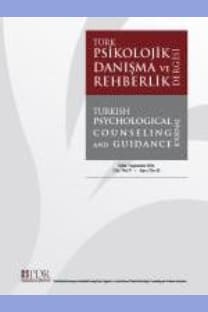How Critical is Preschool Attendance for Students to Build a Higher Science Self-efficacy? A Comparative Study of Finland, Singapore, and Turkey Using PISA 2015 Data
Öz
Preschool attendance rates have been increasing in recent decades yet there is some level of deviation throughout the participating countries in PISA. Finland and Singapore are the countries with a very high level of preschool attendance rates while the attendance rate in Turkey lags evidently behind the OECD average. In this study, we investigate the association between preschool attendance and science self-efficacy for these countries using the PISA 2015 data. PISA is an international survey study on 15-year-old students’ science, mathematics and reading literacies to evaluate the education systems in the participating countries. Regression analyses for each country have revealed that students’ preschool attendance is associated with their science self-efficacy scores to some degree in all three countries. The difference in self-efficacy seems to be getting larger as the preschool attendance increases. Singapore has the highest effect size while Turkey has the lowest one considering the magnitude of the association.
Anahtar Kelimeler:
Science self-efficacy, preschool attendance, PISA 2015, science education
___
Addey, C., Sellar, S., Steiner-Khamsi, G., Lingard, B., & Verger, A. (2017). The rise of international large-scale assessments and rationales for participation. Compare: A Journal of Comparative and International Education, 47(3), 434-452.Bandura, A. (1977). Self-efficacy: Toward a unifying theory of behavioral change. Psychological Review, 84(2), 191-215.
Barnett, W. S. (1995). Long-term effects of early childhood programs on cognitive and school outcomes. The Future of Children, 5(3) 25-50.
Barnett, W. S. (1998). Long-term cognitive and academic effects of early childhood education on children in poverty. Preventive Medicine, 27(2), 204-207.
Berlinski, S., Galiani, S., &Manacorda, M. (2008). Giving children a better start: Preschool attendance and school-age profiles. Journal of Public Economics, 92(5-6), 1416-1440.
Burger, K. (2010). How does early childhood care and education affect cognitive development? An international review of the effects of early interventions for children from different social backgrounds. Early Childhood Research Quarterly, 25(2), 140-165.
Britner, S. L., &Pajares, F. (2006). Sources of science self‐efficacy beliefs of middle school students. Journal of Research in Science Teaching, 43(5), 485-499.
Camilli, G., Vargas, S., Ryan, S., & Barnett, W. S. (2010). Meta-analysis of the effects of early education interventions on cognitive and social development. Teachers College Record, 112(3), 579-620.
De Boeck, P., & Scalise, K. (2019). Collaborative problem solving: Processing actions, time, and performance. Frontiers in Psychology, 10, 1-9.
Diamond, A., Barnett, W. S., Thomas, J., & Munro, S. (2007). Preschool program improves cognitive control. Science,318(5855), 1387-1388.
Hayes, N. (2000). Early childhood education and cognitive development at age 7 years. The Irish Journal of Psychology, 21(3-4), 181-193.
Loo, C. W., & Choy, J. L. F. (2013). Sources of self-efficacy influencing academic performance of engineering students. American Journal of Educational Research, 1(3), 86-92.
MEB (Ministry of National Education) (2017). National Education Statistics. Formal Education. Ankara: Ministry of National Education Press.
Melhuish, E. C. (2011). Preschool matters. Science, 333(6040), 299-300.
OECD (Organisation for Economic Co-operation and Development) (2019). OECD data: Employment rate.Retrieved February 4, 2020 from https://data.oecd.org/emp/employment-rate.htm
OECD (Organisation for Economic Co-operation and Development) (2011). Does participation in pre-primary education translate into better learning outcomes at school? PISA in Focus: 2011/1.
OECD (Organisation for Economic Co-operation and Development) (2013). How do early childhood education and care (ECEC) policies, systems and quality vary across OECD countries? Paris: OECD Publishing.
OECD (Organisation for Economic Co-operation and Development) (2014). Does preprimary education reach those who need it most? PISA in Focus: 2014/06.
OECD (Organisation for Economic Co-operation and Development) (2016). PISA 2015 Results (Volume I): Excellence and Equity in Education. Paris: OECD Publishing.
Pajares, F. (1997). Current directions in self-efficacy research. Advances in Motivation and Achievement, 10(149), 1-49.
Pholphirul, P. (2017). Pre-primary education and long-term education performance: Evidence from Programme for International Student Assessment (PISA) Thailand. Journal of Early Childhood Research, 15(4), 410-432.
Soh, K. (2014). Finland and Singapore in PISA 2009: similarities and differences in achievements and school management. Compare: A Journal of Comparative and International Education, 44(3), 455-471.
- ISSN: 1302-1370
- Başlangıç: 1990
- Yayıncı: -
Sayıdaki Diğer Makaleler
Mustafa Cansız, Ulaş Üstün, Ertuğrul Özdemir, Nurcan Cansız
Nurcan CANSIZ, Ulaş ÜSTÜN, Mustafa CANSIZ, Ertuğrul ÖZDEMİR
Mustafa Eşkisu, Murat Ağırkan, Oğuzhan Çelik
